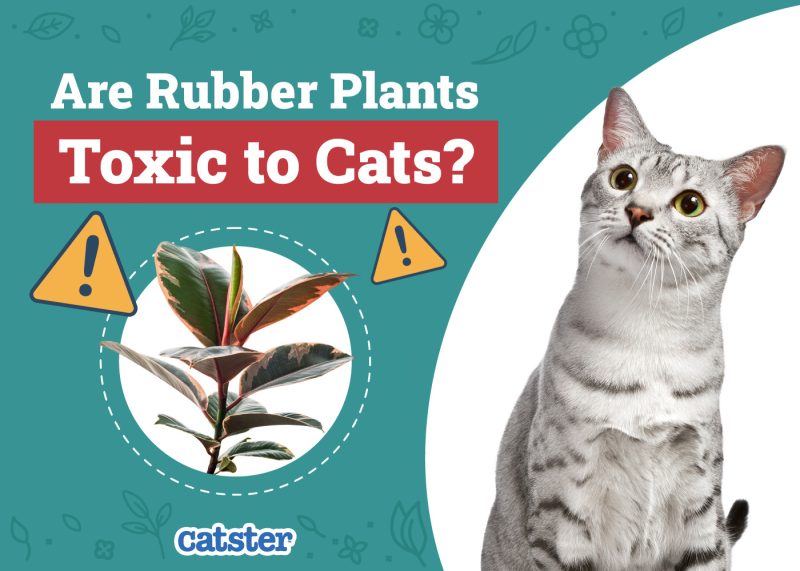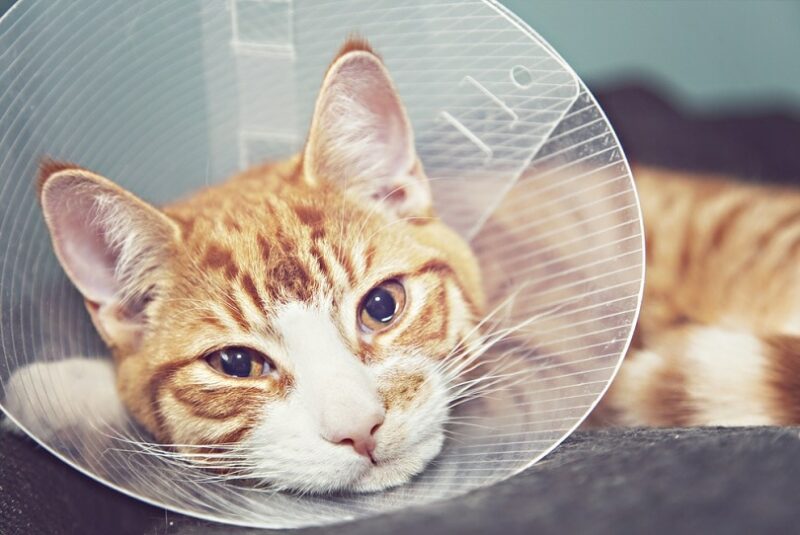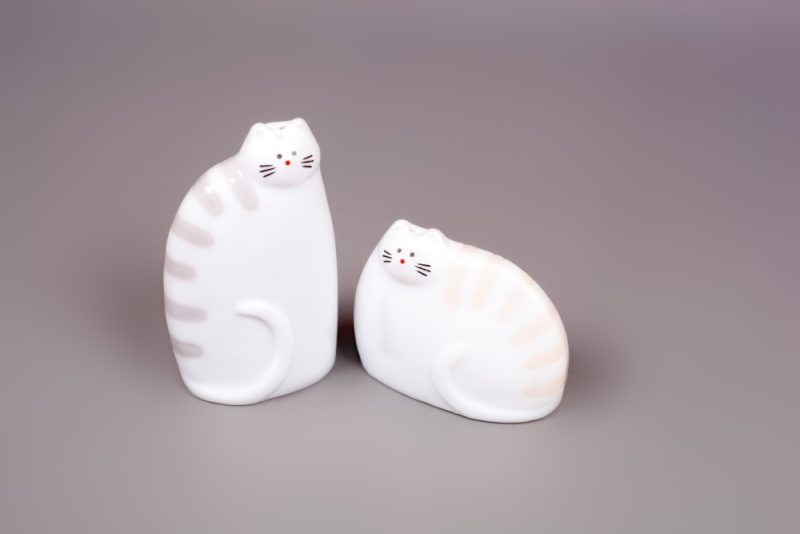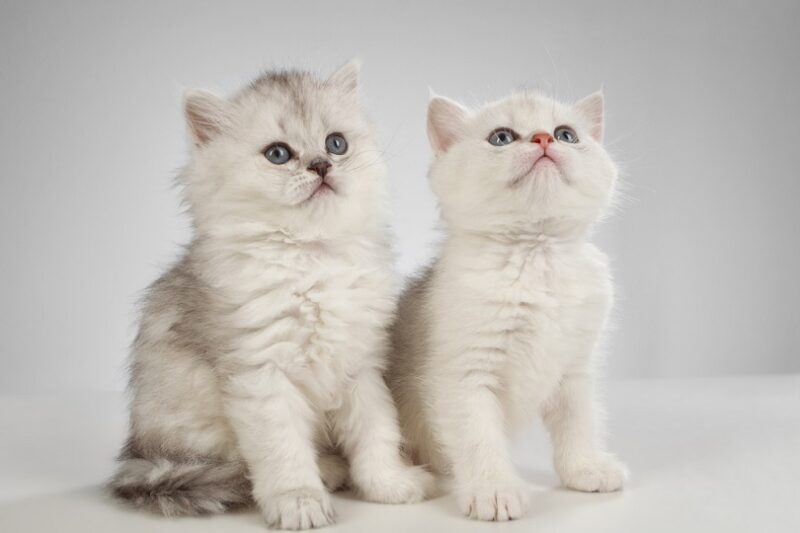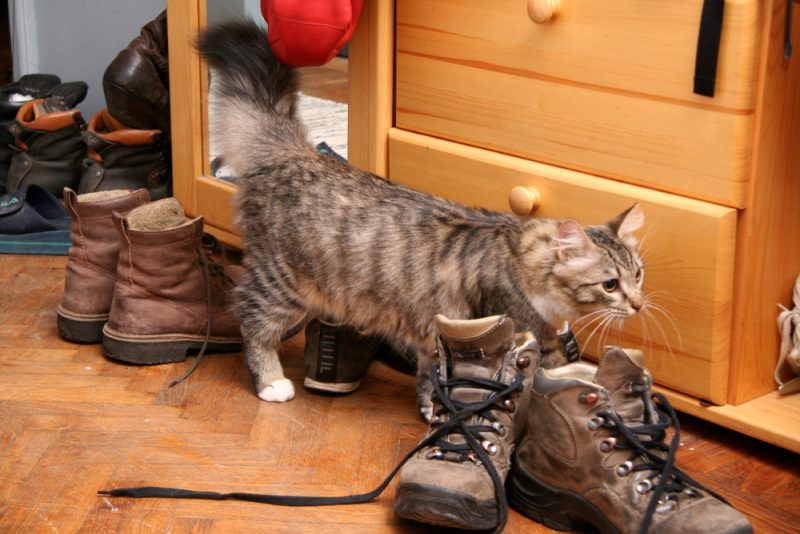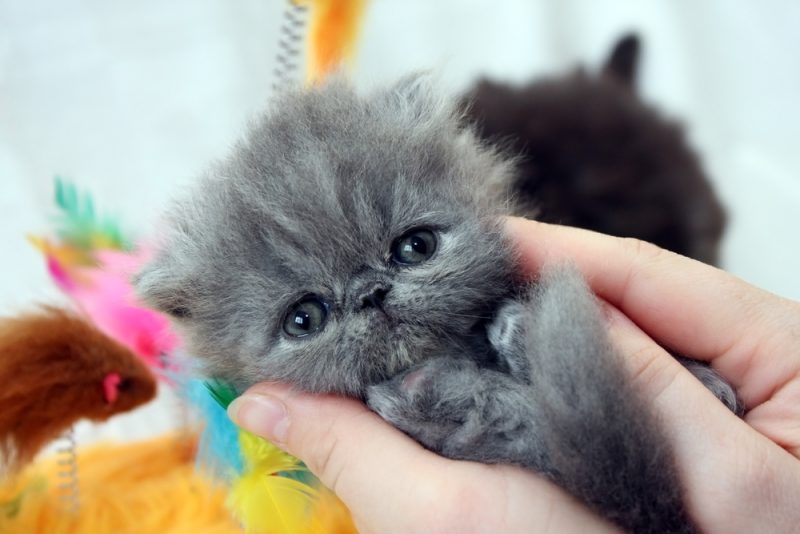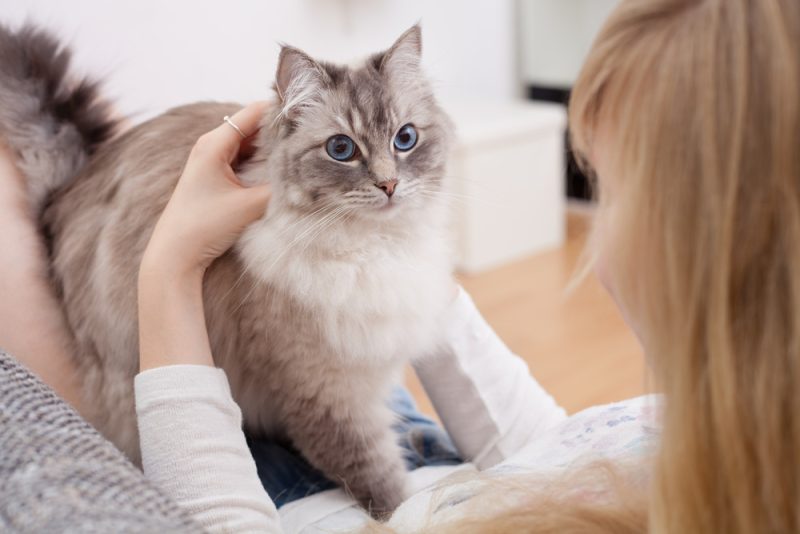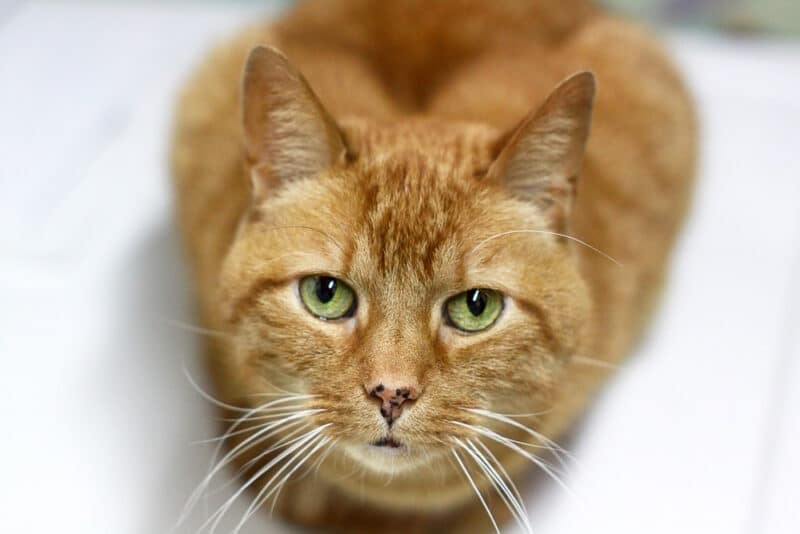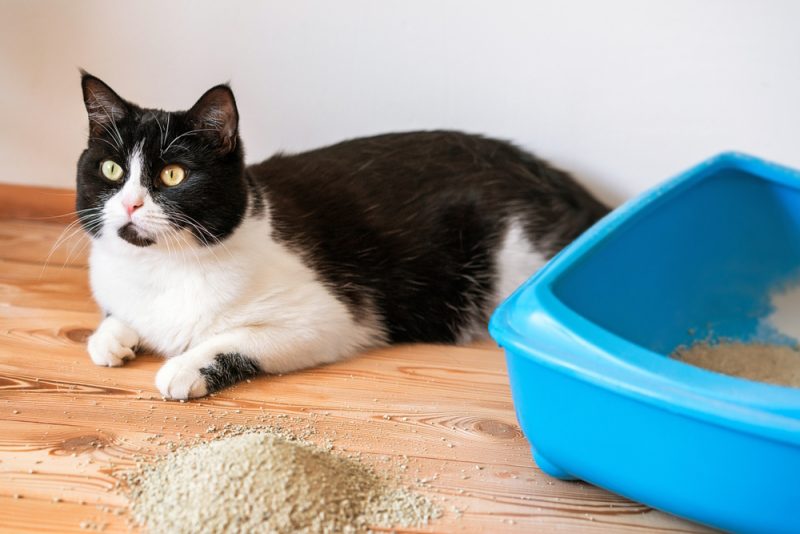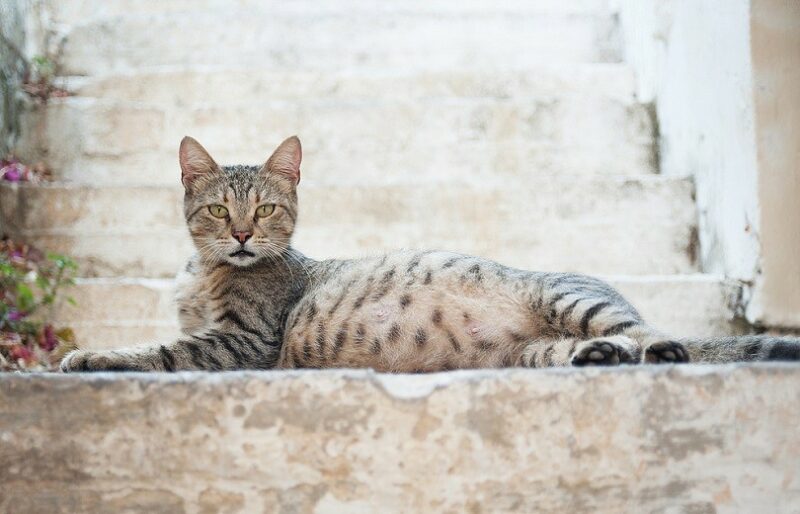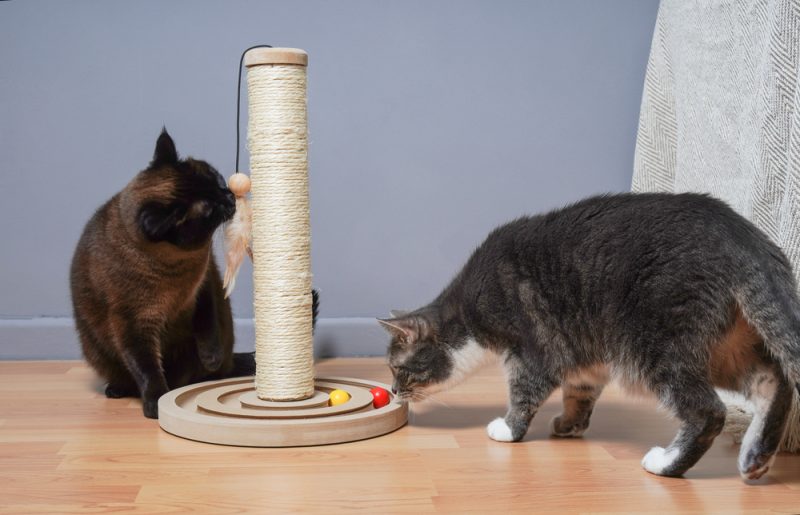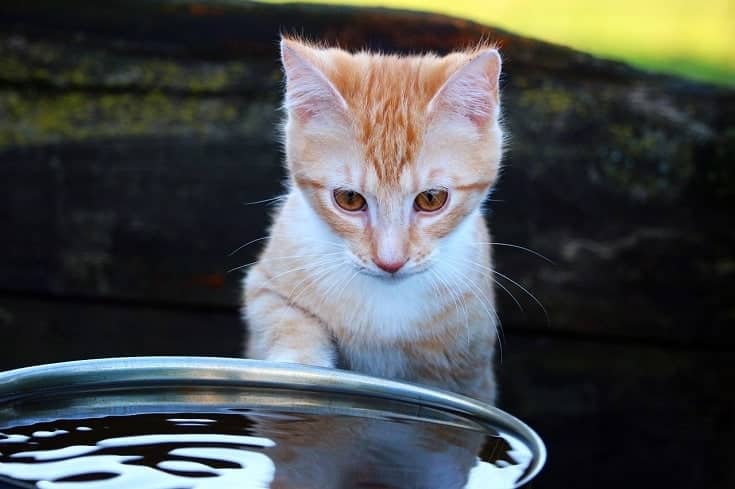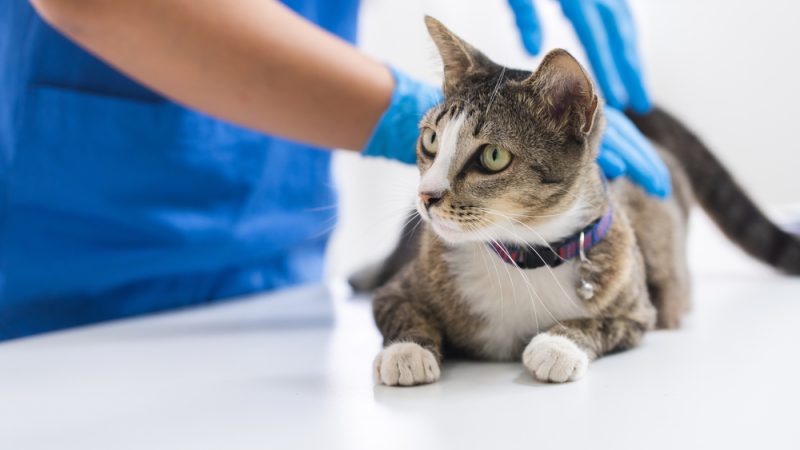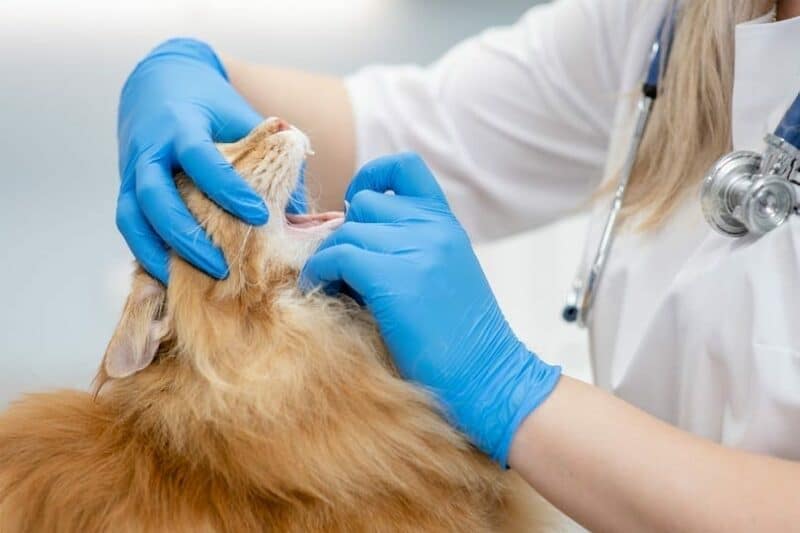The American rubber plant (Peperomia obtusifolia) is native to South America. However, it will flourish indoors with proper humidity and adequate sunlight. This plant is also called a baby rubber plant and a pepper face plant.
Your cat may take an interest in your rubber plant for many reasons. It’s probably fun to swat at the leaves, or maybe the plant is “in the way” and taking up your cat’s favorite sunny windowsill! You may panic if you notice some teeth marks on your rubber plant, but rest assured, the species is not toxic to felines.

What Happens if a Cat Eats a Rubber Plant?
An American rubber plant is not poisonous to cats (or dogs). However, your kitty may have an upset stomach after eating this plant. Some cats have sensitive stomachs and will vomit after eating anything unfamiliar. Felines are also obligate carnivores, and their digestive systems are designed to eat meat, not whole plants.
You needn’t worry if your cat throws up once or twice and then resumes its regular eating habits. Short-lived diarrhea that clears up on its own is not a cause for concern, either.
Although the American rubber plant is not a poisonous species, a plant with a similar name, the Indian rubber plant (Ficus benjamina), is toxic to cats. This plant is also called a fig or weeping fig. Call your vet immediately if your cat eats an Indian rubber plant.
If you need to speak with a vet but can't get to one, head over to PangoVet. It's an online service where you can talk to a vet online and get the advice you need for your pet — all at an affordable price!

My Cat Ate a Rubber Plant: When to Call a Vet
If your cat eats an American rubber plant or another non-toxic houseplant, you’ll want to keep an eye on them for a while. Try to keep them in a secure area or small room for observation. Contact your vet or head to the nearest animal hospital if your cat:
- Vomits repeatedly
- Refuses to eat or drink anything at their next mealtime
- Acts lethargic or weak
- Has uncontrolled diarrhea
- Ate a plant that you can’t identify
Don’t hesitate to call your vet whenever you’re concerned about your cat’s well-being.

How to Keep Your Cat Safe From Houseplants
As long as you have non-toxic plants in your home, it’s difficult to tell who is in danger: your kitty or the plants! Cats and greenery can coexist, but you may need to make a few adjustments.
Try hanging baskets from the ceiling, and ensure the surrounding area is free of furniture, as it’s easy to underestimate how far cats can jump. You can also keep smaller plants inside of a terrarium.
Lastly, your cat may play with your houseplants out of boredom. It might be time for some new toys or treats. A tired, stimulated cat is rarely mischievous!

Final Thoughts
The American rubber plant is not poisonous to cats, but another similarly named plant, the Indian rubber plant, is toxic to cats. However, your kitty may vomit or have diarrhea after snacking on an American rubber plant. This GI irritation should pass quickly and clear up on its own. Contact your veterinarian if your cat’s signs don’t clear up or if you can’t identify the houseplant your cat ate.
See also:
Featured Image Credit: Unsplash
